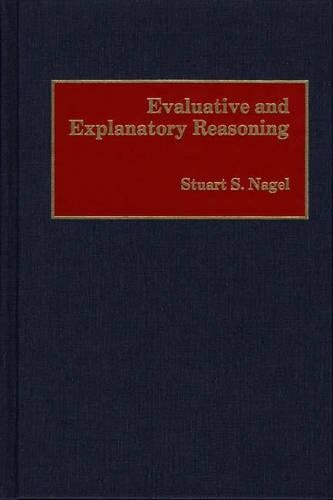
Evaluative and Explanatory Reasoning
(Hardback)
Publishing Details
Evaluative and Explanatory Reasoning
By (Author) Stuart S. Nagel
Bloomsbury Publishing PLC
Praeger Publishers Inc
21st September 1992
United States
Classifications
Tertiary Education
Non Fiction
Systems of law
340.11
Physical Properties
Hardback
232
Description
This volume introduces the concepts of superoptimum evaluative and explanatory reasoning. Stuart Nagel's book aims to help academic and practicing attorneys in two ways. First, by understanding evaluative reasoning, they may gain a better grasp of the appropriate behaviour to be adopted if they wish to achieve certain desired goals. Second, by understanding the elements of explanatory reasoning, they may understand how and why decisions are reached. Evaluative reasoning can take several forms. It can help decision-makers select from among several public policy choices. It can enhance individual decision-making and provide means to allocate scarce resources. It can also assist in advocating and influencing decisions, mediating disputes, representing divergent viewpoints, and in assigning people to specific tasks. Explanatory reasoning, on the other hand, will help explain public policy making, and assist users in generalizing from cases and facts, and in understanding relationships. The purpose of explanatory reasoning is also to explain why superoptimum solutions are infrequently adopted and why they are seldom successfully implemented. The use of both kinds of reasoning, says Nagel, are particularly important to those who want a better understanding and want to improve the legal system.
Author Bio
STUART S. NAGEL is Professor of Political Science at the University of Illinois and a member of the Illinois bar. He has been an attorney to the United States Senate Judiciary Committee, the National Labor Relations Board, and the Legal Services Corporation. Dr. Nagel is the author of several books, including Public Administration and Decision-Aiding Software: Improving Procedure and Substance (Quorum Books, 1990), and Law, Decision-Making, and Microcomputers: Cross-National Perspectives (Quorum Books, 1991)
